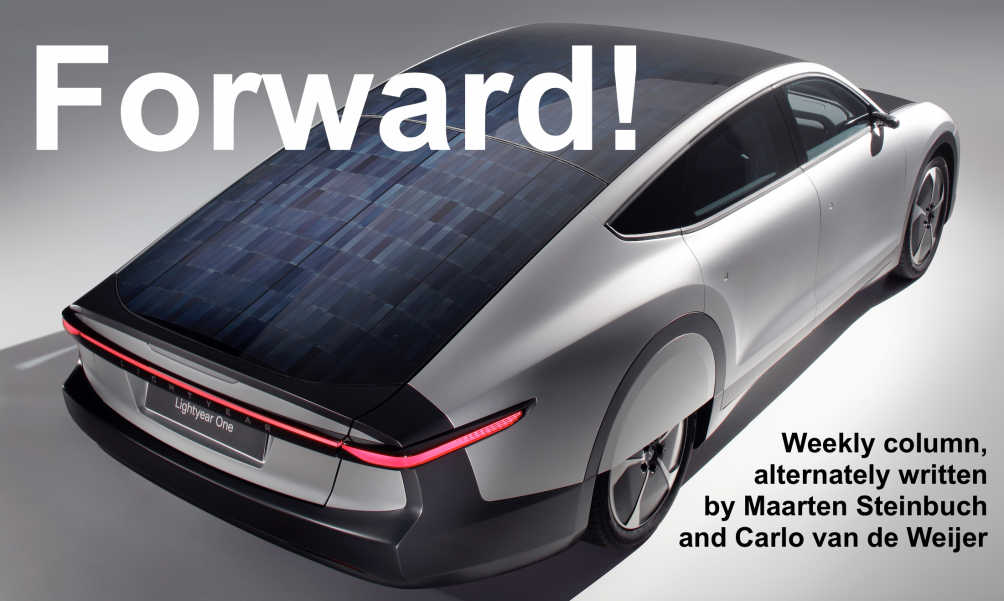
When comparing the environmental friendliness of combustion engine cars with electric cars, a huge number of factors come into play. For an electric car, it goes without saying that issues such as particulate matter, SO2, and NOx emissions from electricity generation should be included.
But what is often forgotten is that the fuel for a car does not just end up in the tank all by itself either. The whole process from crude oil somewhere in the world to gasoline or diesel in your tank also emits a significant amount of the previously mentioned components. Per kilometer driven, it even emits more than what the power plant for an electric car emits. And the process also requires quite a bit of energy: for every hundred joules of gasoline, almost twenty joules of energy are needed. About half of that is for refining, the other half for pumping, transport, and storage.

A pretty interesting detail is that a lot of electricity is also used in the process. For example, to pump up the oil, for transport through pipelines, and for the gasoline pump that you hear rattling when you’re filling up. It’s all electricity that you could also use to power electric cars. Elon Musk once claimed that if you shut down the entire refining process, you’d be left with enough electricity to power his Tesla cars instead of the stalled fuel cars. If that were true, the switch to electric transportation would require no additional electricity. But that’s not true.
Take a liter of gasoline, which an average gasoline-powered car uses to drive almost ten kilometers. The 20% energy to produce that liter of gasoline is equivalent to about 1.8 kWh of energy. That in itself would indeed be enough to power an electric car for ten kilometers. But unfortunately, only a small portion of the energy used in the entire production cycle is electricity, only 2% of that 20%. The other 18% of the energy lost in production involves some of the crude oil itself that is used for refining, plus the fuel for the supertankers and diesel for trucks and the generators on oil rigs. You can also use that fuel to generate electricity, of course, but that’s not nearly enough to make Musk’s claim.
“We need synthetic fuels for airplanes and ships”
Carlo van de Weijer
It’s a different matter if, over time, refineries, oil rigs, trucks, and perhaps even ocean vessels start to electrify. Then you will indeed arrive at a situation where the electricity consumption of a petrol car is greater than that of an electric car. But hey, by that time refineries will probably no longer be needed.
In a few decades, we will no longer refine fuel from crude oil but produce it from clean electricity in places where enough cheap clean energy can be generated. We need those synthetic fuels, often called “e-fuels”, for planes, ships, and heavy trucks. But not for new cars, because as e-fuel cars, they would consume four to five times more electricity than an electric car during the entire process.
Maarten Steinbuch and Carlo van de Weijer are alternately writing this weekly column, originally published (in Dutch) in FD. Did you like it? There’s more to enjoy: a book with a selection of these columns has just been published by 24U and distributed by Lecturis.







